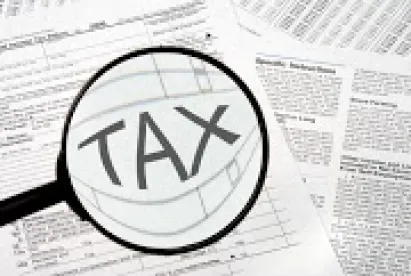In a sharp rebuke, the California Court of Appeals recently rejected an interpretation by the Franchise Tax Board (FTB) that it could apply a 2003 law that increased the penalty for promoting an abusive tax shelter to periods prior to the effective date of the law. The decision involved California Revenue and Taxation Code Section 19177. Under this decision, enhanced promoter penalties for promoting an abusive tax shelter may be assessed only for activities starting January 1, 2004. The holding puts to rest an argument by the FTB that language permitting penalties assessed for any return with an open statute of limitations as of January 1, 2004 also gave it authority to do the same for any promoter.
Stricter Tax Shelter Legislation
Following Congress’ lead in enacting new measures a decade ago to combat the proliferation of corporate and personal tax shelters, in 2003 California adopted comprehensive amendments to Section 19177 in order to protect its revenue coffers against rampant shelter activity. As part of the legislation, the California legislature increased the previous $1,000 penalty for promoting an abusive tax shelter up to 50 percent of the gross income received from the transaction. The portion of the amendments that were codified in Section 19177 referenced the federal promoter penalty provision in Internal Revenue Code Section 6700.
However, part of the enacted legislation was not codified, although it included additional instructions on how the new promoter provisions were to be applied going forward. In particular, an uncodified provision provided that the overall penalty act was appropriate for any penalty assessment “on any return for which the statute of limitations on assessment has not expired” on or after January 1, 2004. “All other provisions of this act shall apply on or after January 1, 2004,” the act stated. (See Stats. 2003, ch. 656, § 15, subd. (a).)
FTB Seeks Aggressive Penalties
The FTB sought promoter penalties of nearly $27 million against Quellos Group, LLC and Quellos Financial Advisors, LLC (Quellos) for the firms’ alleged role in pushing a California taxpayer to use an abusive tax shelter in 2001. The penalty was imposed under Section 19177 based on the FTB’s belief that it could reach the promoters’ 2001 activity because it could similarly impose penalties on taxpayers’ pre-2004 returns where the statute of limitations was still open. The penalty was significant, not only in scope, but because under the old version of Section 19177, the penalty for promoting a tax shelter was only $1,000 per promoter.
Quellos disputed the penalty assessment and paid the 15 percent required under Section 19180 to dispute the penalty administratively. Eventually, Quellos filed a refund action in state superior court. The lower court bifurcated the case and issued an initial ruling that the 2003 version of Section 19177 did not apply to Quellos’ 2001 transactions, giving the firms a refund of all amounts paid in excess of $1,000. The FTB then filed original actions with the California Court of Appeals seeking to overturn the lower court’s decision. Even though the superior court had not entered an entry of final judgment, the appellate court held it could properly hear the case because of significant public interest in quick resolution of the case and ability to avoid an unnecessary expensive trial.
Deconstructing the Code
The California Court of Appeals started its legal analysis of the retroactive penalty issue by acknowledging the strong presumption against retroactive application of statutory provisions unless the legislature has manifestly intended such result. With that backdrop, the court examined the legislature’s intent by focusing on “the statutory language itself as the most reliable indicator” and assigning the language its “usual and ordinary meanings.” The court noted that the “plain language of the 2003 version of Section 19177 is silent on the issue of retroactivity.” The court also found no evidence backing up the FTB’s contention of Congressional intent for retroactive application in the federal analog of Section 6700.
The appellate court turned to the uncodified language of section 15, which it viewed as pertinent and dispositive of the retroactivity issue. Because the 2003 amendments covered a variety of different statutes, section 15 functions as a “collection point” in which to address retroactivity comprehensively, the court stated. Section 15 demonstrates that “the Legislature rejected the idea of a single universal rule of application” and instead specifically delineates only retroactive application for “any penalty assessed on … any return.” The court held that this return requirement thus makes it impossible for retroactive treatment to extend to a non-return promoter penalty. The court found the FTB’s retroactivity reasoning to be a nonsensical and tortured reading of Section 19177, and characterized the notion of using a taxpayer’s open statute of limitations as a means to impose a promoter penalty as “untenable bootstrapping.”
While the court acknowledged that the result places a heavier burden on taxpayers who prior to 2004 entered into tax shelters than on the promoters who set them up, the court refused to engage in making its own policy decision, noting that retroactivity determinations are the proper sphere of the legislature. The court concluded that with “no express language of retroactivity in the 2003 version” of Section 19177, the FTB did not rebut the strong presumption against retroactive application.
Takeaway
Despite giving the promoters in this case a reprieve from the enhanced promoter penalty assessment, the court’s decision offers limited protection to most current situations involving tax shelter promotion. The appellate court’s analysis and statutory interpretation methods reveal that arguments by the FTB for retroactive application of amendments to the code will be strictly construed and demonstrates that courts will require the FTB to overcome the high hurdle of a presumption against retroactivity.






 />i
/>i

